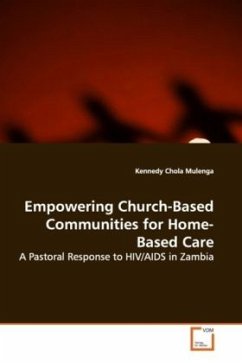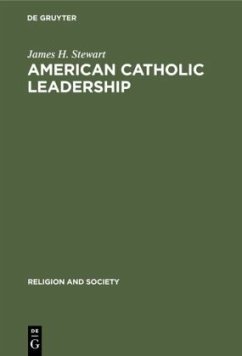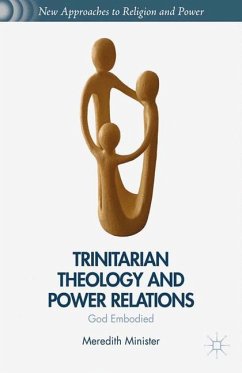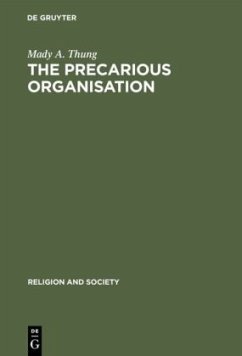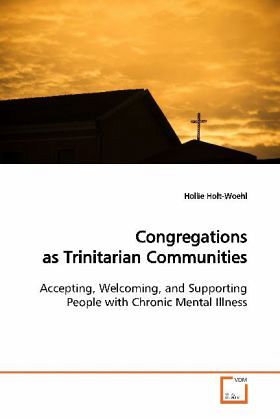
Congregations as Trinitarian Communities
Accepting, Welcoming, and Supporting People with Chronic Mental Illness
Versandkostenfrei!
Versandfertig in 6-10 Tagen
45,99 €
inkl. MwSt.

PAYBACK Punkte
23 °P sammeln!
Many people with chronic mental illness are unable tofind a congregation where they feel welcomed. Thisbook researched six congregations to discover commoncharacteristics of congregations who are accepting,welcoming, and supporting of people with chronicmental illness or diversity. Two attitudes werepresent in these congregations; (a) each person is achild of God, and (b) all people are gifted by God.Also discovered was a conscious decision not to hideaway people with chronic mental illness/diversity. ATrinitarian ecclesiology with a perichoreticunderstanding of the Trinity as community, isuti...
Many people with chronic mental illness are unable to
find a congregation where they feel welcomed. This
book researched six congregations to discover common
characteristics of congregations who are accepting,
welcoming, and supporting of people with chronic
mental illness or diversity. Two attitudes were
present in these congregations; (a) each person is a
child of God, and (b) all people are gifted by God.
Also discovered was a conscious decision not to hide
away people with chronic mental illness/diversity. A
Trinitarian ecclesiology with a perichoretic
understanding of the Trinity as community, is
utilized. Bowen theory is used as a framework for
understanding emotional process in congregations. In
addition, a theory of congregations as organizational
systems is developed from field theory,
self-organizing systems, and chaos theory. This book
is for congregational members, pastors, theologians,
and researchers who wish to champion mental health
issues in congregations and to hear stories of full
participation of people with mental illness in
congregations.
find a congregation where they feel welcomed. This
book researched six congregations to discover common
characteristics of congregations who are accepting,
welcoming, and supporting of people with chronic
mental illness or diversity. Two attitudes were
present in these congregations; (a) each person is a
child of God, and (b) all people are gifted by God.
Also discovered was a conscious decision not to hide
away people with chronic mental illness/diversity. A
Trinitarian ecclesiology with a perichoretic
understanding of the Trinity as community, is
utilized. Bowen theory is used as a framework for
understanding emotional process in congregations. In
addition, a theory of congregations as organizational
systems is developed from field theory,
self-organizing systems, and chaos theory. This book
is for congregational members, pastors, theologians,
and researchers who wish to champion mental health
issues in congregations and to hear stories of full
participation of people with mental illness in
congregations.



